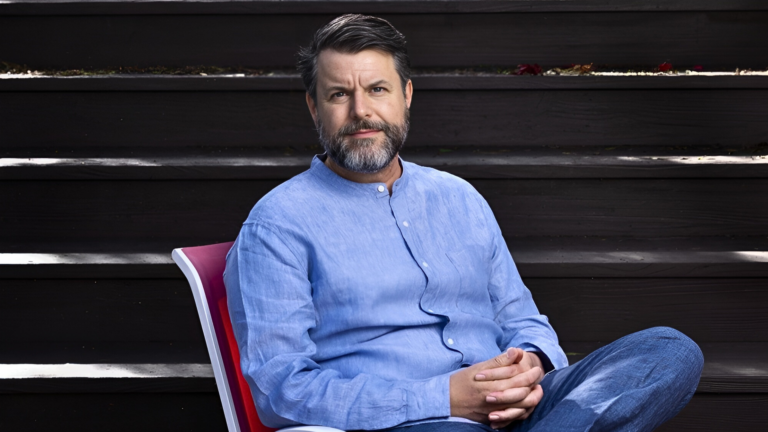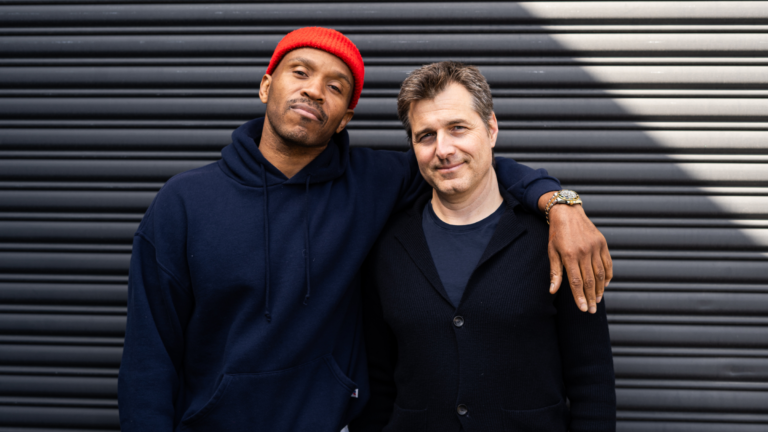This week’s conversation is with Jamie Wheal, founder of The Flow Genome Project and author of Recapture the Rapture: Rethinking God, Sex, and Death in a World That’s Lost Its Mind.
Jamie is one of the most brilliant thinkers I know – he has advised executives at some of the world’s leading companies (Deloitte, Red Bull, Google, Lululemon, Facebook, TD Ameritrade, Nike, and Goldman Sachs), and his work & ideas have been covered in The New York Times, Financial Times, Wired, Entrepreneur, Harvard Business Review, Forbes, Inc., and TED.
You may remember Jamie from his previous appearance on Finding Mastery back in 2017 where we discussed flow states and altered states of consciousness – that’s episode #67 if you’re looking to check it out.
This time around, we discuss some of Jamie’s most recent work where he takes radical research out of the extremes and applies it to the mainstream, exploring macro topics like where we are today, why it’s so hard to make sense of the world, what might be coming next, and what to do about it.
“How did we all get here? None of us want this outcome. And yet we’re all hell bent in either opposition or acquisition to help drive this f*cking beast off a cliff.”
In This Episode:
Is the world f*cked up?
The long roundabout way of saying it is, I do think we are in for historic structural challenges up ahead. I think the fundamental name of the game is, can we take this one time bonanza of the carbon pulse of the last 150 years, where we just happened to find a bunch of buried dinosaurs under the ground, which was fundamentally photosynthesis carbon, and it was just buried starlight. And we found out a way to Beverly Hillbilly stick a straw on that thing and light those fuckers on fire. And so we basically got a hundred million years of buried starlight once. And it was the equivalent of the college kid whose parents went away and he goes and hits the ATM and scores an eight ball and goes on a weekend long coke binge with all of his, like Risky Business gone badly wrong, right? And that’s been us. That’s the entire 20th century. That’s the entire 21st century.
Is he optimistic or pessimistic about the future?
I always think of John Lennon, he said, “I love humanity, it’s just the fucking people I can’t stand.” And in some respects there’s an element of that as far as optimism, pessimism. I am long term, I think even beyond optimist, that I subscribe, as a conscious act of radical hope, to believe in the indefinite positive resolution and outcome that is worth us giving everything we’ve got on behalf of. It’s the Admiral Jim Stockdale, the Stockdale Paradox that Jim Collins popularized, that idea that the POWs in Vietnam, the pessimists understandably didn’t survive, but neither did the optimists. It was the people who balanced, ruthless assessment of current reality without ever letting go of commitment to the long term positive outcome. And to me we’re all in Stockdale’s Paradox at this point.
“Our math is bad”
This goes to the clash last night with this indigenous tribe and the settlers is that there’s an externality temporally or through time. Because these folks are like, “Listen, we are the people, this is our place. We have been here for time immemorial, and we are preserving and protecting this for our descendants for time immemorial.” And market incentives and modern, rational egoic identity, I am me, I can be anything I want, I’m not beholden to my town or my place or my grandparents or whatever, I get to be me, we tend to highly favor optionality in the moment. So we fail the marshmallow test all day long. And so the idea of what’s most profitable now, and never mind for whomever downstream, and what is the maximum extractive value, never mind externalities, I feel like if we just included that in the calculus of our market based system, we would end up with structurally different results. So I feel like our math is bad, versus that we ate.
Our reactions need to be unified
our job is to continue to hash it out on a fair field of play, but within which we both agree to uphold the rules and the spirit of the game. To me, that’s not sexy. You don’t get retweeted saying something like that. But if there was something that we could all stand up and take a stand in force. So for instance, when the George Floyd riots happened, one of the things that concerned me the most was the preemptive and overwhelming quasi-military use of force by police departments on otherwise peaceful protesters of citizens. And you’re like, holy shit, cannons and bean bags and tear gas. Like this got salty in a hurry. And it felt to me that you could have a universal rallying, left and right to say, Hey, whoa, don’t defund the police, but definitely demilitarize the police.
Meaning 1.0
The simplest is just to chunk it into a notion of what was version one, meaning or meaning 1.0, which was arguably organized, religion and wisdom traditions. There, weren’t sort of, none of the aboves I don’t go to church on Sundays. You were either were a member of the community and it’s religiosity and its priest class, rabbis, bishops, and imams, or you were a heretic and wildly persecuted to straight up snuffed or run out of town. So just to say that if any human came into this world and said, “Well, who am I? And what is this all about? And what am I supposed to do? And how do I deal with this human experience?” Well, meaning 1.0, organized religion was the one which was our sole source. Then you get printing presses, you get all the good things. You get the scientific revolution, you get the European enlightenments as well as a host of worldwide movements.
Meaning 2.0
So meaning 2.0 with meaning 1.0, offered us salvation, if you believe you’re saved, but it was at the cost of exclusion. If you don’t believe you’re kicked to the curb. That was the first one. So very, very insular and in group out group and lots of religious wars, lots of suffering, lots of those things that came with that downsides to the good sides. And then meaning 2.0 offered inclusion. Everyone is entitled to life, liberty in the pursuit of happiness at the cost of salvation. Nietzsche’s, “God is dead.” And scientific materialism has risen in its place. And so those for a long time, 20th century kind of propped up the world and you could float between them. You could mix and match, but that was the larger dome where the big tent that we all lived under. And then arguably in the last 10 to incrementally over time. And then the last 10 years super duper accelerating because of COVID, because populous movements and upturn crazy elections and politics, because of digital media amplifiers, because of all the things we know, we had a collapsed in both of those. And when there was nowhere to turn for shared consensus about what it all means, or what’s going on, we’ve had the vacuum is sucking people into fundamentalism.
Game Theory
I think there’s two really, really helpful frames for folks to wrap their heads around when we see what seems like just all this mustache puzzling nefarious activity, and you’re like, “Are we awful fuckers? Or is there a little subset Illuminati clique that those are the really awful fuckers?” But either way, there’s a lot of awful shit happening. So somebody is to blame. Right? And the first is just kind of game theory 101. What do humans do in situations and how do they optimize, benefit, and minimize harm for whatever set they’re solving for. So as far as the notion of, are there bad actors or why are there so many bad actors or is that a sign of our root rottenness or are they outliers? Right? One frame that’s really helpful is game theory. And specifically the idea within game theory of what’s known as the “Multipolar trap.” And the poles are just different people or different actors. And the idea is fundamentally, if there’s a near certain chance that somebody is going to eat the last slice of cake. “So somebody’s going to do it, right? That’s almost certain. So it might as well be me because if I’m generous, altruistic, whatever it would be, and then somebody’s going to eat- Some fucker’s going to come in and eat the plate. I should have. Or my country should take that deep sea fishing, or we should drill, or we should land on the moon first or whatever, if somebody’s going to do it.”
Radical hope and leaving space for grace
Well, here’s the thing. This does get us into the space for radical hope, or what we would say is leaving space for grace. Leaving space for grace, which is novelty, which is emergence, which is serendipity, which is delayed or deferred luck or totally plantable consequence of reactions. But there’s things we can’t see from here. And if we give up that faith, then they cannot happen. So we have to keep the faith in case they might. It’s a little like Linus in the pumpkin patch. “I meant when the great pumpkin comes, not if.” You can’t give up the faith or your fucked. We have to keep showing up in the pumpkin patch for the great pumpkin to ever come… space for grace is a choice. It’s literally, “I choose to believe this.” But it is also, I think, a neurophysiological set point that we can condition in ourselves. So if I am stressed, if I am distracted, if I’m living in a painful past or a fearful future, and I’m not in my actual present embodied metabolic, but also sovereign self, then I don’t have access to any of those things. The present is the only place that our prefrontal cortexes and our thumbs are co-located. So if I’m distracted into the past or the future, I’m in my daydreaming prefrontal cortical self, but I got no thumbs. I can’t do shit in the past or the future from here.
How does he leave space for grace?
Fundamentally ecstatic cathartic release, AKA kick ass concerts and shows. Events like Burning Man, adventure trips, things that really hit the high water mark of peak state information, inspiration. And then also some form of bodily, emotional, relational healing, and mending integration. Those things forever drive me forwards. Basically seeking novelty and making art. Having new experiences that just fire the synapsis and reaffirm our aliveness. And that could be travel. That could be progressing and learning in a relationship. That could be a thousand things, challenges, opportunities, but just novelty. If my life is the same old hamster wheel, I feel like I’m dying. And the other is make up. Can I rally against the second law of thermodynamics? That everything ends in entropy and decay. And can I just make anything a little more good? A little more true? Or a little more beautiful? Simply as a testament to the human spirit, my existence in anybody else who may experience it. And then the final one is help out because if I’ve cracked one or both of those first two, I’m good at keeping my life fresh, and generative, and growth-oriented. And I am making testaments. And it doesn’t have to be paintings. It could be a garden, it could be a poem. It could be a old house renovation. Anything that is just organizing matter and, or mind into greater coherence. Good, true, and the beautiful
Seeking novelty
That seeking novelty, that’s always my first chair. If I’m in really willing to slit my wrist territory, you’re like, “Oh, how novel has my life been lately?” And almost certainly, there’s been an absolute tanking. I’ve been stuck, injured, stuck at home, busy. I mean, quarantine, all the things that have happened to all of us also. And you’re like, “Oh, my novelty. My novelty tank is way, way, way low.” And just to ground this, you know Robert Sapolsky’s work at Stanford and all of his stuff on the [inaudible 01:03:22] system, et cetera. A lot of people think it’s just pleasure, but it’s actually salience, which is constantly seeking two things actually. Salience, does this, can this help me or hurt me? And then also novelty. And the novelty, he calls the magic of maybe, but as hunter gatherers all on up, we’re quadruply rewarded for seeking, not just the good thing, but the new good thing. So it is at a very deep level of our seeking searching system, our default mode network, reality scanning and strategizing network, all the way up to executive functional stuff. But a lot of our horsepower upstairs is fronted on scanning and seeking the new. And when there isn’t any, we become disincented and, or static. To say nothing of the Bob Dylan, he not busy being born, is busy dying. That just covers it. So go out and do some new shit.
Meaning 3.0 and what’s next
What’s next is trying to articulate meaning 3.0. So we’re doing a couple of things. One is exploring… Fundamentally, what is a postmodern theatrical megachurch? So what would religion 3.0 look like on Broadway? So take Hillsong church, take Joel Osteen. All those folks are using, they’re poaching mad things from EDM, festival culture, they’ve got smoke machines, and cannons, and jumbotrons, and lasers. And if you see any of those services, they’re indistinguishable from a Diplo show. But they’re peddling really old school, outdated scripture. The orthodoxies are still completely unreconstructed, pre-Vatican. Gays go to hell kind of stuff. And you’re like, “Whoa.” People are coming for the Jesus rock. They’re staying for the fundamentalist vitreal. And so the question there would be, “What does it look like to really blow the lid off trickster, postmodern mythopoetics?” Why should QAnon have all the fun? You’re not going to defeat movements like QAnon with a better Wikipedia page or [inaudible 01:12:05] effect. It’s that, it’s taking place at the level of grand narrative of mythopoetic of stories. And it has darkness and light, and it has all these things. So surely, folks with some creativity, and some inclusivity, and a sense of play and fun could, and that’s just a giant ass space in the mimetic market that I think is entirely unclaimed. And in general, left in the progressives of fundamentally lost their sense of humor. Back in the ’60s and ’70s, they were doing street gorilla theater, and all kinds of things, and all the zines and all this stuff, it was high trickster quotient. And now everyone is so self-serious. It’s insufferable. So injecting some fun and sacramental religiosity into postmodern secular experience. To me, that is a canvas for the rest of our career, I would say.
What path does he want to take moving forward?
Gosh, I would say being an upstanding member of the church of the eternal stoke, that would be one. And then on a more practical, “what do I do in the morning?” I was actually leading a group on what is your, I don’t know what the fuck, I don’t even like this category, but fundamentally “What’s your core purpose or mission statement.” But I realized I was like, I don’t have one. Oh my gosh. And I was like, “Well, what’s mine?” And I didn’t even have to think, it was “seek truth and share it.” And for me, once again, a dialectic between two poles and it was if I only sought truth, but didn’t share it, I’d end up slinging lightning bolts in a loin cloth in a cave somewhere. I would get untethered from my humanity and everybody else’s right. But if I only shared it and stopped seeking it, then I would become a cheap cardboard knockout of the artist formerly known as me. So it felt like it has to be that dialectic for me to stay vibrant and alive. It’s the shooting the moon, and then coming back and sharing it, hopefully as possible.


